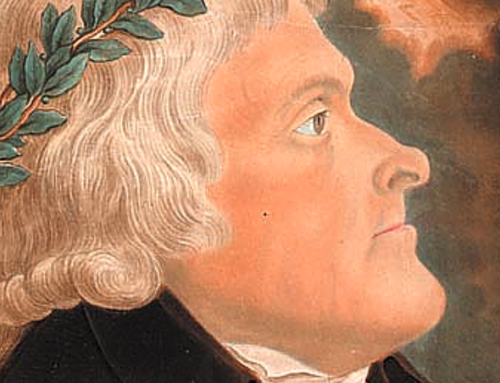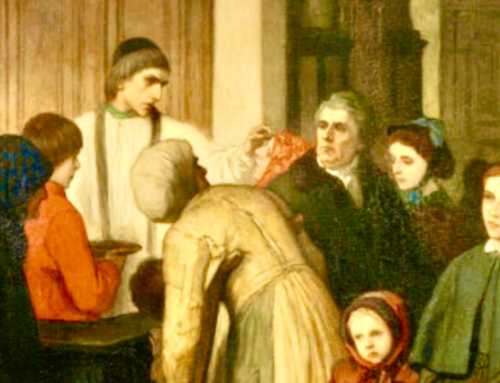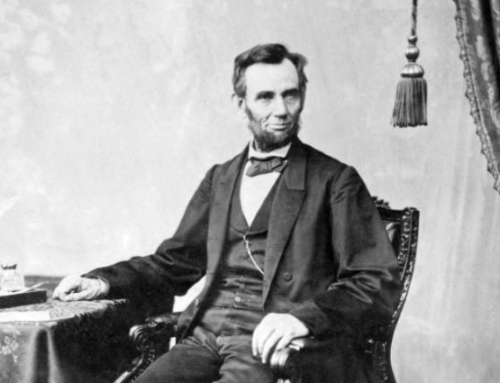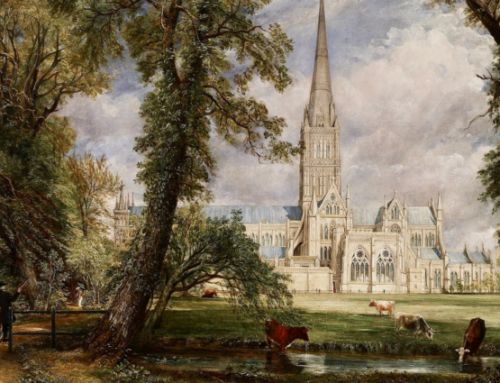“A-a-as a student at St Andrews you w-w-won’t have much money of course,” said Dr. Kirk, lighting another cigar from the passenger seat of the college Buick. We were not yet halfway to Mecosta, so the floor was barely covered in ash, and I could still see my ankles and the accelerator. Somehow, the visiting professor and his driver managed to travel for three or four hours while each smoking cigars, and still managed to see through the windscreen despite the roiling clouds of blue haze. Open windows helped.
Dr. Kirk explained how in his own years of poverty at the preeminent Scottish university a quarter century before, he had survived largely on oatmeal (the student staple there in the 15th Century and later) and peanut butter, an American delicacy which in those post-war years in Britain must have been hard to come by. “You will find fish unaffordable, but chips are not,” he continued. “A-a-t least you can treat yourself now and again.”
At his recommendation, we had turned off of the state highway to take the prettier and more interesting country roads north past little towns long abandoned, among the gnarled Michigan oaks and ancient elms that had just begun to throw pale green buds in early spring. This way took a little longer but was considerably more pleasant and it afforded me more time with Dr. Kirk.
“The fish shops sell chips in two portions,” he explained, “thruppenny bags and a larger one for a sixpence. Always buy two thruppenny bags because the shopkeeper will give you more chips than you’d get in one sixpenny bag.” I had never been further abroad than Canada and having read his volume on the strange old town of St. Andrews, still the best book of its kind, and listened to many of his recollections of the Ancient Pictish Kingdom of Fife as the former county is still sometimes called, this curious strategy seemed most welcome.
“As you know, St. Andrews is the most haunted town in Scotland and maybe the world,” he mused, “and sometimes the ghosts engage visitors in conversation.” He shifted topics to recall the chatty, amicable, tweed-suited shade, now long gone, who haunted the gardens of Durie House near Leven, and then he warned me of whatever had lived in the yew tree beside Pitmilly House before it escaped long imprisonment by the ancient Pictish owners, moved inside and burnt all to the ground in a vast midnight holocaust. Pleasant hours later, we arrived at Mecosta.
It was some months on that I arrived at St. Andrews, and some weeks afterwards that some new Scots friends, and I set off down South Street into its medieval narrows, to the local ‘chippie’ owned, as all of them were in those days, by former Italian prisoners-of-war who had elected to remain. Their descendants are there still, retaining their Italian names but gesticulating and chattering in broad Scottish accents. I repeated my teacher’s advice and my friends stopped dead in the street to stare at me, confused and dumbfounded.
More than five years earlier, Britain had abandoned its traditional currency with groats and silver thrupenny bits and crowns and guineas in favour of decimalisation, and for these young university students the old money was but a faint childhood memory. Moreover, by the mid-1970s, the poverty and parsimony of Dr. Kirk’s generation was no more. Well-heeled we were not, but government grants ensured that student could afford formerly-unaffordable luxuries such as fish and chips, not to mention copious quantities of beer in the pubs, at least until they ate and drank through their subsidies and were forced onto a temporarily more stringent regime until a new term arrived with a new grant. In those dire, final weeks, however, the balding, tubercular ducks began to disappear from the Kinnessburn creek into student cookpots, and, ironically, the posh restaurants filled with penniless students dining well on Daddy’s newfangled credit card.
“They dinnae sell thruppence o’anything anymair,” one friend explained, shaking his head.
“Besides,” said another, “the cheapest bag o’chips is fefty pee, ye ken,” meaning fifty ‘P’ or new pence—prices had risen considerably over the intervening quarter-century.
“Who tauld ye this anyway?” asked a third.
I started to explain about the chips that supposedly came in two portions but that, too, appeared to be filed in my friends’ minds somewhere between Churchill’s second government and the Punic Wars. We carried on up the street, past medieval stone fronts amid the fine Georgian townhouses, and they shot me occasional glances just to be certain that I had not been sent down from some alien spaceship. I thought that I might wait to ask if any of them talked with the local ghosts.
Books on the people and topics discussed in this essay may be found in The Imaginative Conservative Bookstore. The Imaginative Conservative applies the principle of appreciation to the discussion of culture and politics—we approach dialogue with magnanimity rather than with mere civility. Will you help us remain a refreshing oasis in the increasingly contentious arena of modern discourse? Please consider donating now.








Leave A Comment